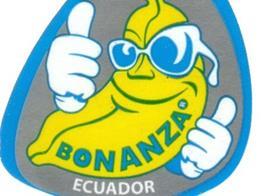
Article updated 16:00 GMT to correct 'Ecubex' to 'Ecumed'. The first of these Maersk Line container shipping services is used by one of JFC's rival companies, Banex Group. Ecumed, meanwhile, is one of two services used by JFC, the other being an MS service into St Petersburg.
Russia's largest fresh produce importer JFC, which filed for insolvency this week, has revealed it took the decision to start bankruptcy procedures in order to protect its creditors and keep its sizeable business operations afloat.
Andrey Afanasiev, chief executive of JFC Group, sought to reassure those companies to whom it owed money, arguing that bankruptcy procedures had been initiated precisely in order to avoid defaulting on payments.
'2011 was a tough year for our company, Afanasiev commented. 'Due to the operational losses JFC currently shows some symptoms of temporary insolvency. Our address to the court follows the demands of the law and our wish to continue operations as well as to protect the creditors.'
He added: 'I want to stress that our creditors understand the nature of our problems, agree that these are temporary and are ready to reach compromise in developing new schemes of debt repayment.
'JFC has sufficient resources to continue the operations and plans to remain the leader of the Russian market.'
Boxed in
Within the fresh produce industry, eyebrows have been raised over the timing of the move, which comes shortly after JFC lost a high-profile legal case against specialised reefer vessel operator Star Reefers.
In August 2011, JFC was ordered by the high court in London to pay €11.9m plus legal fees to Star Reefers, after the UK-based group's claim that JFC terminated charter agreements in mid-September 2010 on 'spurious' grounds was upheld.
One commentator suggested JFC's subsequent decision to switch its in-bound banana shipments to Maersk's Ecumed service between South America and Russia may ulitmately be seen as an own goal.
'What this did was force JFC, and by extension its major customer Magnit, to commit to regular weekly shipments in order to avoid paying deadfreight,' the source said.
'With prices in Ecuador high due to a lack of product, the Russian fruit market collapsed last year and this was partly to do with the incursion of container lines running services at minimal margins or perhaps even a loss, which destroyed the market.'
JFC's ability to turn a decent profit has been questioned for some time, particularly in the wake of a reported Rb47.6m (€1.2m) net profit for the first half of 2011 and Rb34.7m (€882,000) for the whole of 2010, the latter representing a decrease of 79.1 per cent on the previous year.
Elsewhere, rumours are rife among European fresh produce traders about the potential amount of money JFC owes to creditors, with some suggesting that figure could be 'at least €200m'.
'It's too early to say exactly what the potential losses could be,' said one European importer, 'but given JFC's involvement in sourcing from places like Latin America and South Africa, this is certainly a major blow to other parts of the trade.'
Market unrest
In a statement on its website, JFC said the group's management had opted to start the 'procedure of supervision' in order to protect the interests of its creditors of the company and to continue operating.
'Bananas imported by JFC Group cannot be substituted by any other fruit,' the group said. 'For more than 12 years JFC Group is the largest supplier of bananas to the Russian market. Currently the company provides up to 40 per cent of bananas consumed in the country.'
JFC sought to place its own bankruptcy in the context of recent global events and the ongoing economic recession.
'In 2011 the unrest of the international market caused particularly by the events of 'Arab spring' led to the bankruptcy of the numerous companies, including Adriafruit Italia and Israeli cooperative Agrexco,' it said.
JFC makes around 30 per cent of its sales in the southern Mediterranean and, as a result, said it had faced 'significant losses' due to alleged disruption of its business relations, loss of markets and what it claimed were 'bad debts' in the region.
'Practically every large operator of the international banana market faced financial problems in its history,' it continued.
'For example, in 2001 Chiquita Brands International had to use Chapter 11 procedures to restructure the business. Presently the company is one of the leaders of the international market.'
For those in the fresh produce business hoping to recover payments from JFC, the successful renaissance of Chiquita following its high-profile brankruptcy more than a decade ago is unlikely to provide much in terms of reassurance.



